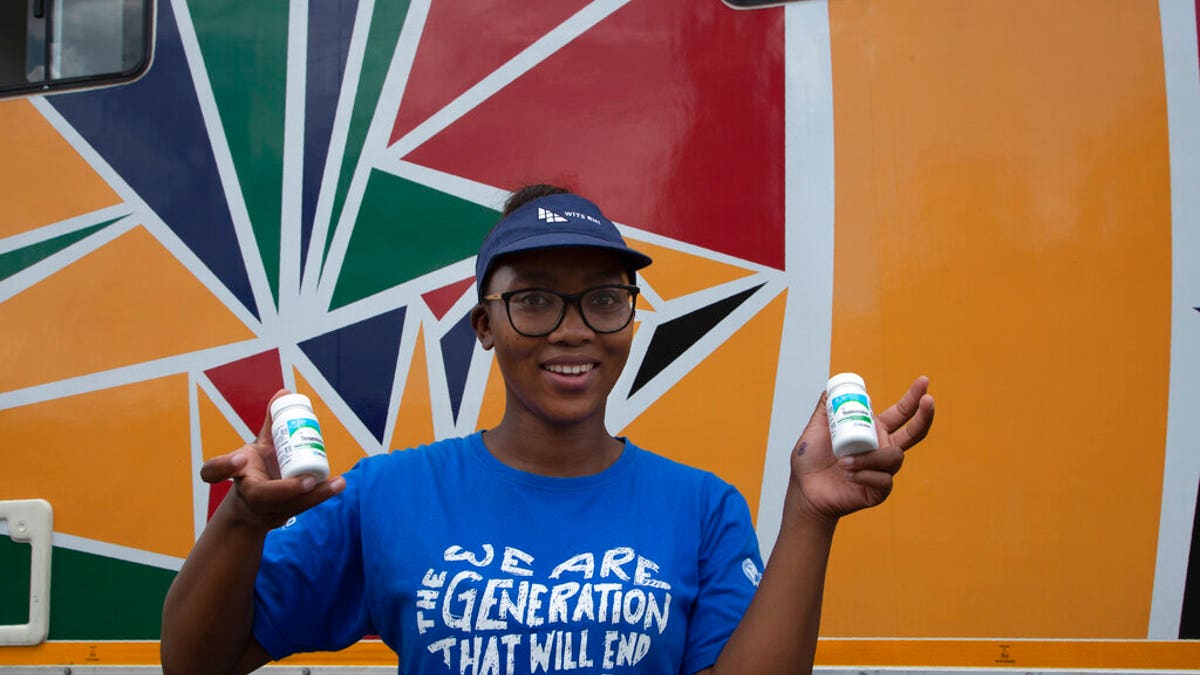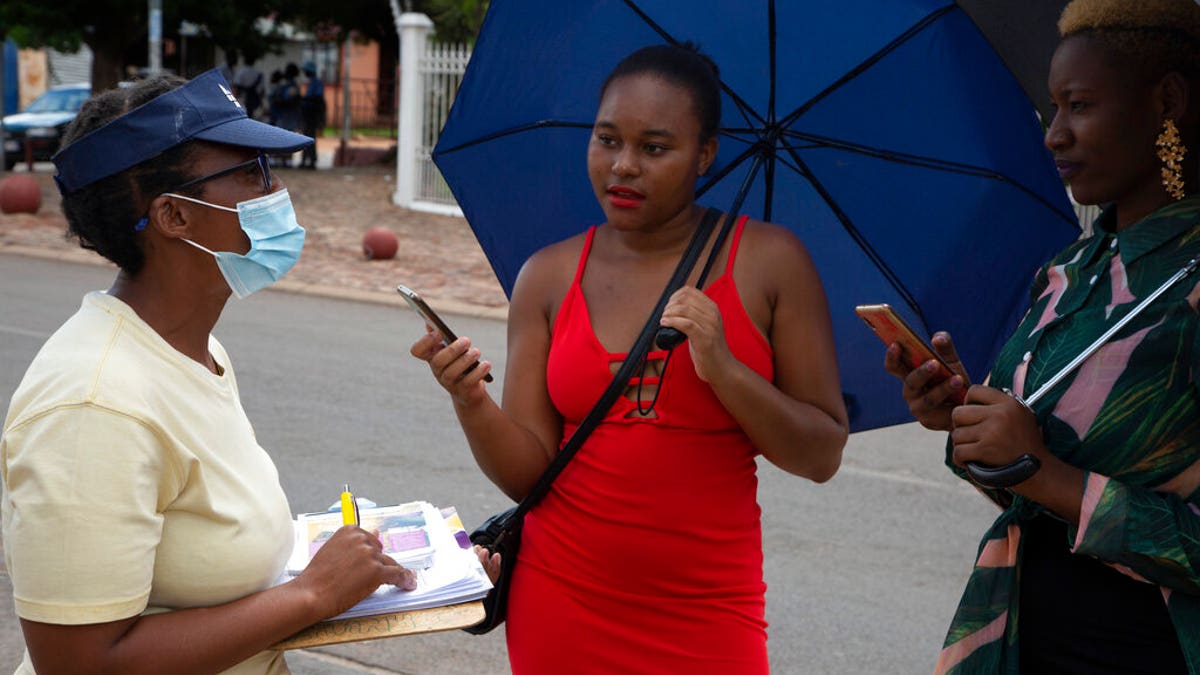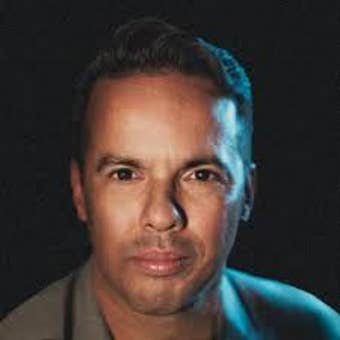Fox News Flash top headlines for December 1
Fox News Flash top headlines are here. Check out what's clicking on Foxnews.com.
World AIDS Day marks “a time to mourn and a time to rejoice.” While COVID-19 remains the infectious disease top of mind to most Americans, Tuesday, Dec. 1, marks a time to remember the tens of millions of people who have died from AIDS-related illnesses, including nearly 700,000 people just last year.
We grieve these millions of lives, but we also celebrate the tremendous progress against the epidemic. With U.S. investments in The Global Fund to Fight AIDS, Tuberculosis and Malaria and the President’s Emergency Plan for AIDS Relief (PEPFAR), since the height of the HIV crisis in the early 2000s we have cut annual AIDS-related deaths and new infections by half. Today, 25.4 million are on lifesaving antiretroviral therapy.

Khanyiswa Kwatsha, who runs a mobile clinic for the Reproductive Health and HIV Institute (RHI) background, shows containers of PrEP medication used in the prevention of HIV infectionin in the Soshanguve Township, north of Pretoria, South Africa, Thursday, Nov. 26 2020. The successful trials of a new injectable drug that needs to be taken every eight weeks to prevent HIV infection is being lauded on World AIDS Day as a turning point for the fight against a global health threat that's been eclipsed by the coronavirus pandemic. (AP Photo/Denis Farrell)
However, COVID-19 now threatens to reverse the tide of saving lives with projections of death rates soaring to the height of the AIDS pandemic in the 2000s.
The Global Fund is reporting significant disruptions to AIDS service delivery due to lockdowns, medical staff being re-assigned to fight COVID-19, limited access to HIV services, and patients avoiding health care facilities because of fear of COVID-19 infection. Supply chains to deliver antiretroviral therapies also have been disrupted for the 16.4 million people on these lifesaving drugs in sub-Saharan Africa.
DR. MARC SIEGEL: CORONAVIRUS VACCINE NEWS IS REASON TO REJOICE – WHEN LEADERS SOW DOUBT, IT'S DANGEROUS
Since March, the Global Fund has played a critical role in the international COVID-19 response, working with partners to purchase and supply COVID-19 tests; strengthen local health systems so they can test, track and treat COVID-19; provide health workers with personal protective equipment; and adapt critical HIV, TB and malaria programs so they can safely operate during COVID-19. Moreover, they are prepared to roll out treatments and vaccines once they become available.
During the George W. Bush administration, I had the honor of championing what may be the legacy of his tenure: the commitment to Compassionate Conservativism, supporting global health and development.

A counsellor, left, discusses with women the use of PrEP medication and the prevention of HIV infectionin in the Soshanguve Township, north of Pretoria, South Africa, Thursday, Nov. 26 2020. The successful trials of a new injectable drug that needs to be taken every eight weeks to prevent HIV infection is being lauded on World AIDS Day as a turning point for the fight against a global health threat that's been eclipsed by the coronavirus pandemic. (AP Photo/Denis Farrell)
We rallied behind PEFPAR to prevent and treat HIV/AIDS. More than 25 million people now are alive today because of his leadership, the leadership of Congress, and the support of the American people.
Proudly, the church played an integral role as advocates and service providers at the helm of this movement. We need Compassionate Conservativism again now.
HIV DEATH RATES DROP BY NEARLY HALF, CDC REPORTS
In the words of Ecclesiastes, there is “a time to keep silent, and a time to speak.” Now is the time to advocate, or speak up, on behalf of those in developing nations who are suffering with or are vulnerable to not only COVID-19 but also to long-standing infectious diseases like HIV.
As Christians, we have the Lamb’s agenda. This agenda calls us to love, from womb to tomb, and to advocate for the least of these.
Advocacy is the simple practice of offering your voice to uplift those who may be powerless, voiceless, or seemingly hopeless, because every life is sacred, made in the image of God.
CLICK HERE TO SIGN UP FOR OUR OPINION NEWSLETTER
Responding to global health needs also further our global security interests. We need a comprehensive, global response to COVID-19 that doesn’t pull resources away from other smart, long-term U.S. public health investments and keeps up the fight against HIV.
By addressing infectious diseases like HIV or COVID-19 globally, we are using non-military power to tackle larger security problems by building diplomacy and good will in many potentially unstable war-torn or threatening nations.
Healthy people mean healthier nations. And healthier nations mean a better, safer world.
The Global Fund needs $4 billion from the United States over the next two years to adequately respond to COVID-19 and its knock-on impacts on HIV. This investment should be part of a comprehensive international response of at least $20 billion in emergency funding – separate from fiscal year 2021 appropriations, which will be enacted too late to stem huge human costs.
Lawmakers of all parties should prioritize ensuring that no soul, Americans and those abroad, have to suffer needlessly from COVID-19 or HIV.
CLICK HERE TO GET THE FOX NEWS APP
In a letter to Timothy in the New Testament, the Apostle Paul writes, “I have fought the good fight, I have finished the race, I have kept the faith.”
Now is not the time to relent. Now is the time to double down on our efforts, tackle the disruptions of COVID-19 in low-income nations and finish the race we started in 2003 to end HIV and AIDS as an epidemic by 2030.










































